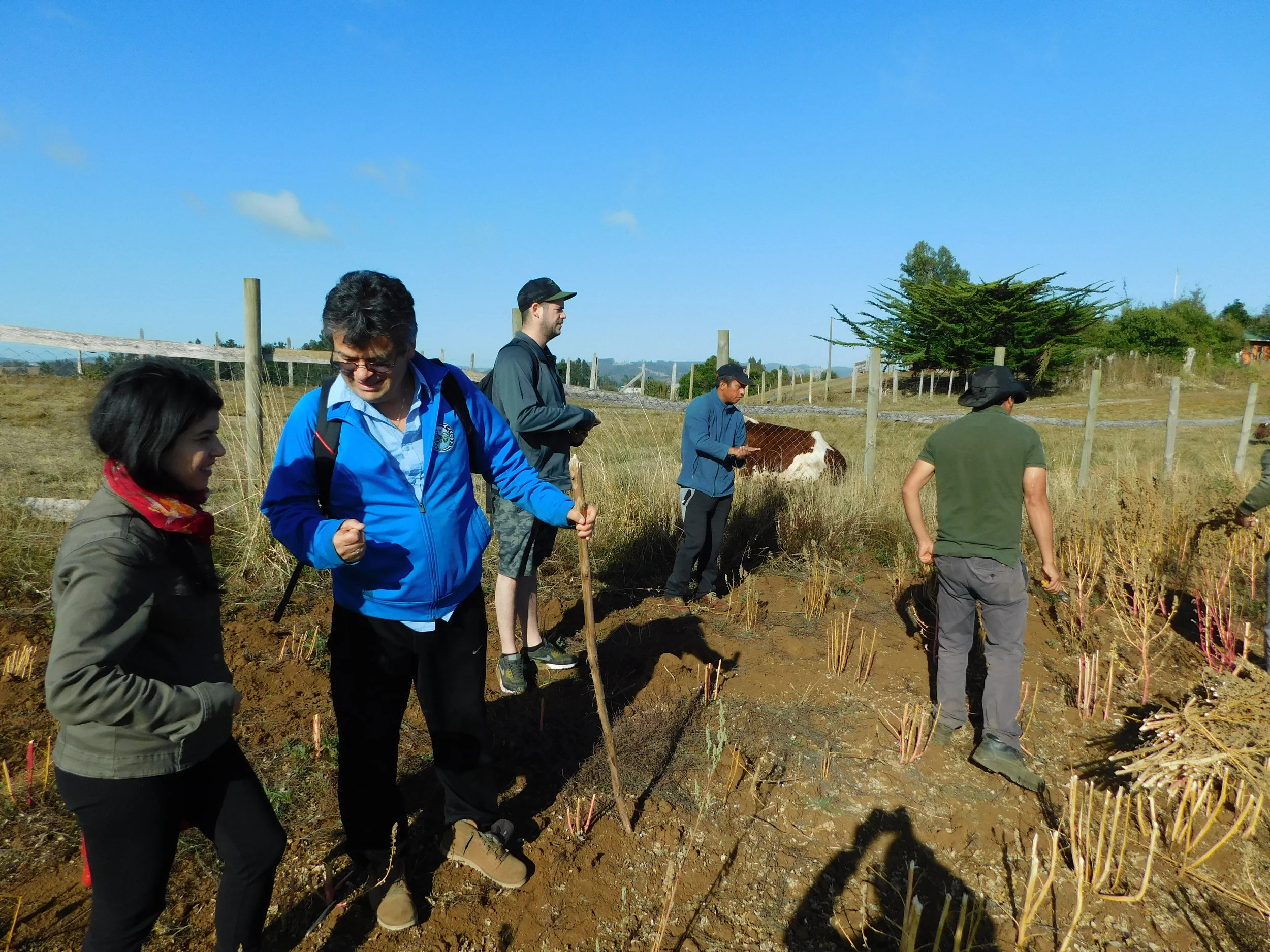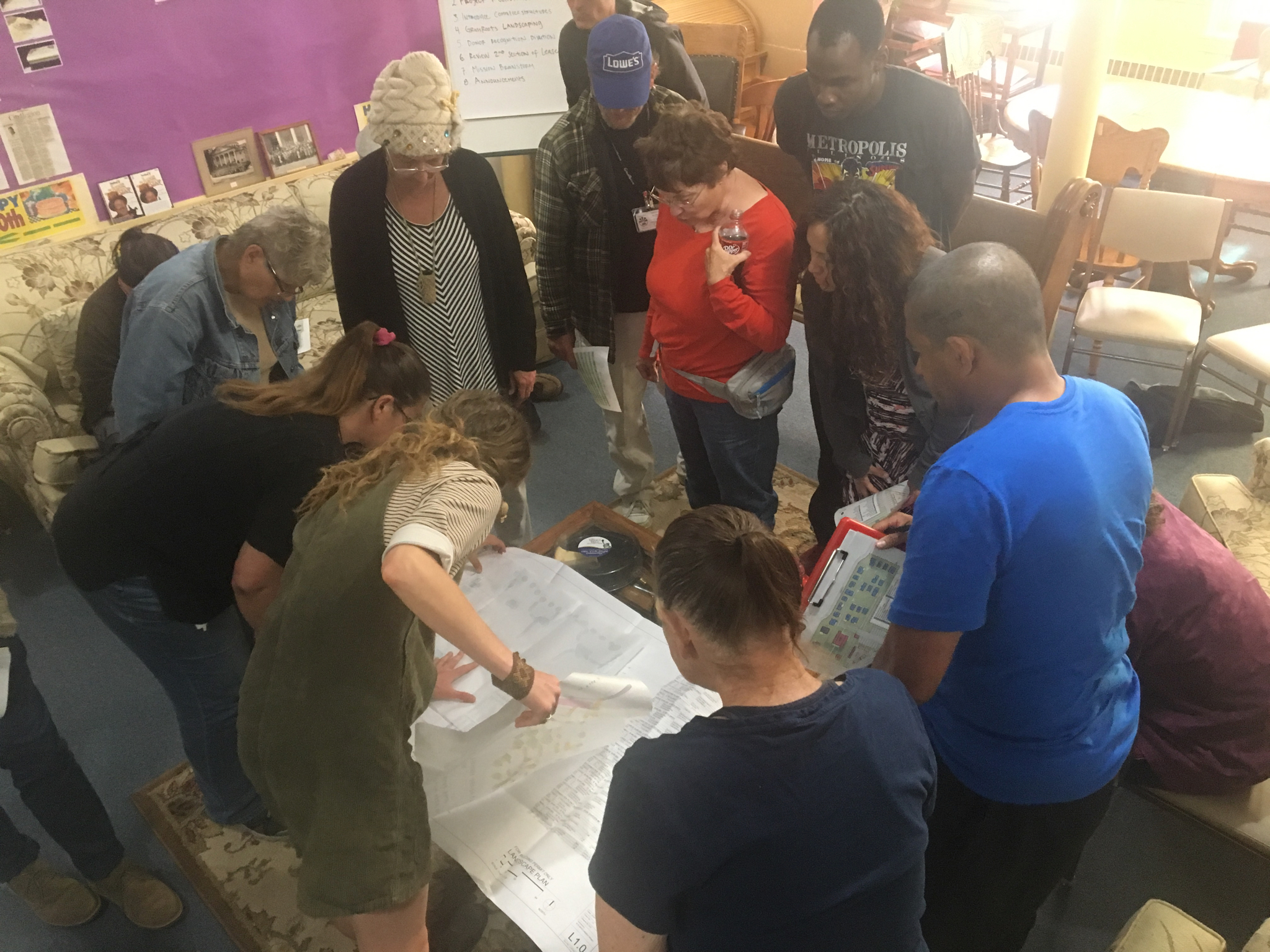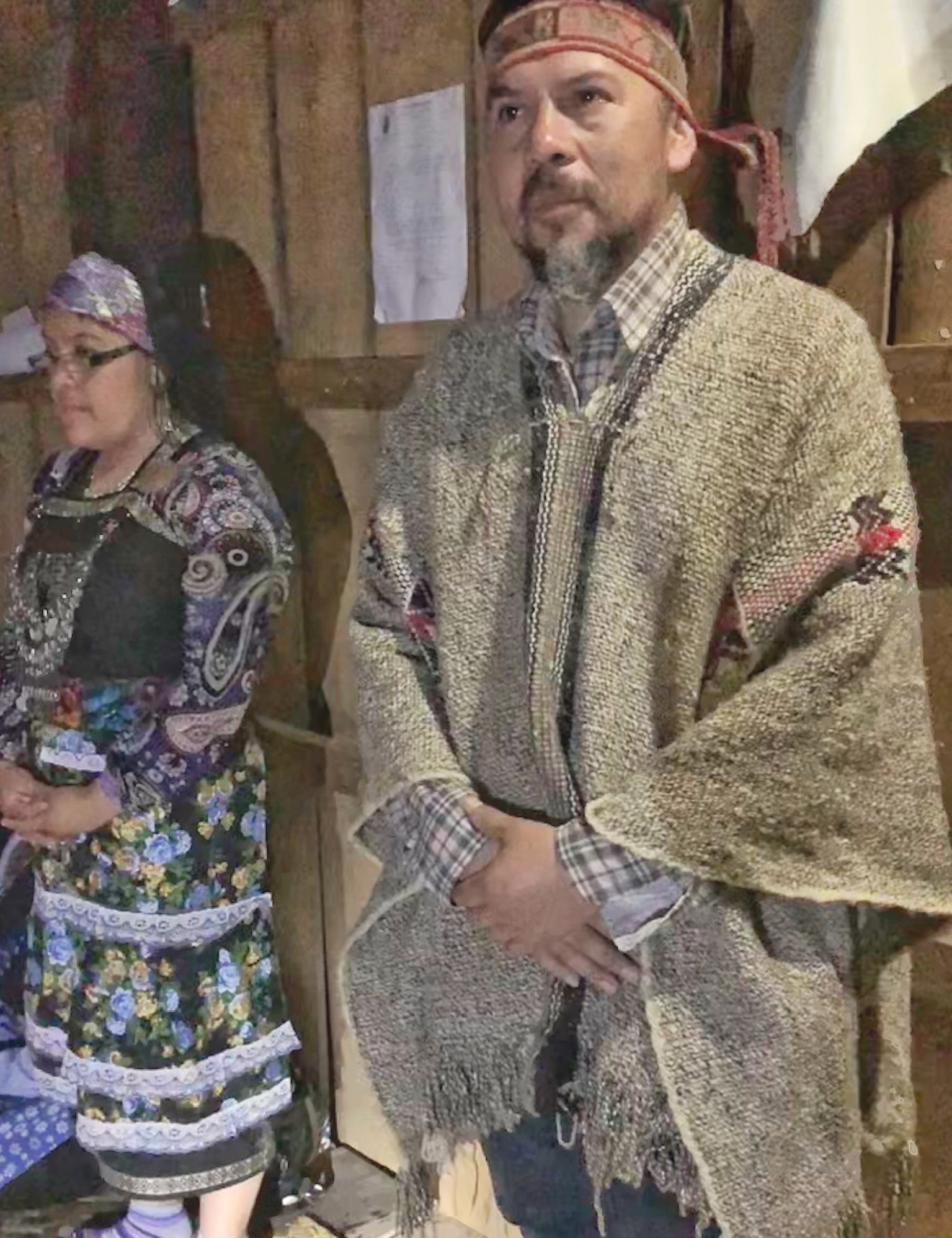By Fernando Quilaqueo Calfuqueo
Field Coordinator for MAPLE Microdevelopment Chile
Member of the Llaguepulli Mapuche Community
January 2018
Translated and Edited by Teodora C. Hasegan, Anthropologist, Ph.D.
Original Spanish Version: Click Here
Please also enjoy our most recent video field update featuring Fernando by clicking here!
An unexpected invitation…
It was to our honor and delight that the PAWANKA Foundation sent an invitation to the Community of Llaguepulli to participate in a gathering of Indigenous leaders from several pockets of our planet...in Cambodia! I had never been to Cambodia before, or that part of Asia. Cambodia is a small country in Asia, with a population similar in terms of size to that of Chile, but very different socially, economically and culturally from Chile.
My community were recipients of a grant for the first time awarded in 2017 by the Pawanka Foundation (supported by the Indigenous Ways of Knowing and Learning, an indigenous-led grant-making initiative) to help us transition to a healthier agriculture, by re-linking our native seeds and ancestral knowledge. With the support of MAPLE Microdevelopment Chile and together with two more members, Fresia Painefil and Kelv Painefil, I participated at the gathering in Cambodia as a representative appointed by the leaders of the community and as a member of the management team of MAPLE Microdevelopment Chile’s program for transition to agroecology.
Photo 1. The delegation to Cambodia with members from the Mapuche community of Llaguepulli: Fernando Quilaqueo (center), Kelv Painefil (to his left), and Fresia Painefil (second from right), October 2018.
The Objectives of the Trip
The purpose of this trip was to participate in the Regional Exchange of Learning about Seeds, Food Security and Agroecology meeting held between October 22 and 26, 2018 in the city of Siem Reap in Cambodia. This meeting was organized and funded by the PAWANKA Foundation and the Organization for the Promotion of the KUI Culture of the Preah Wijía Province of Cambodia, and represented an occasion for past grantees to share experiences of their community initiatives. It was an opportunity for us First Peoples Communities to discuss projects we have implemented and developed on the recovery of ancestral knowledge (especially related to seeds) and ways of life (based on the relation between human beings and nature). The gathering had a gender and holistic approach in the context of climate change. Indigenous women were convoked to speak about holistic agricultural solutions in their communities such as organic agriculture and safeguarding of native foods.
Some of the Communities and institutions that participated were: the host, the Organization for the Promotion of the Kui Culture of the Province of Preah Wijía in Cambodia (OPKC); Trinamul Unnayan Sangstha from Bangladesh (TUS); Mizquito community from Nicaragua; and the Mapuche Community of Llaguepulli from Chile, Joan Carlin (Pawanka Foundation Director), Mariana López (Pawanka Foundation Coordinator), Karla Busch (Pawanka Foundation Executive), and Yuri Futamura and Alan Zulch (from the TAMALPAIS Foundation) (headquartered in San Rafael California), main donors of PAWANKA funds, also participated.
What We Learned from the Gathering
Among the main experiences and lessons shared by the participating Communities in this meeting I should highlight the similarity in the processes of social, cultural, and economic changes caused by colonization and state policies. There is also an incessant struggle for self-determination and conservation of natural resources, which are threatened mainly by timber and monoculture industries, especially in Cambodia and Bangladesh.
But I remember also the successful experience of collaborative relations between the Kui Community, through the elders’ council, and the local police and the province. Jointly and through a strategic plan, they work to protect their native forest already restored and managed by the Kui Community itself. This would be inconceivable even in Wallmapu (a Mapuche ancestral territory), where the police have very different interests than the defense of collective rights.
International Allies to Indigenous Peoples
International allies are key for creating support to First Peoples striving for a better Planet. For example, the collaborative approach of our international allies in the territory is to install and develop tools or self-management capabilities in the Communities with regard to natural resources and family economy which are in accordance with the natural cycles or Mapuche Lafquenche worldview. Our great challenge in the medium and long- term is to consolidate a self-management team in the Community to lead our own development proposals, and become ever more autonomous in the decision-making processes while strengthening our youth to become the future leaders of our communities and family economies.
I learned that the Kui Community, especially, maintains its cultural traditions intact. Its relationship with forests is of vital importance for its economy and families because the tropical forest has a great biodiversity of species which constitute the main source of nutrition for families, in addition to providing wood, harvesting resin, fish and livestock.
Collectively, the Community grows traditional organic crops of rice, tubers, corn and beans, many of them using their own traditional seeds, incorporating techniques in rotation management and association of crops. The forest soils are very fertile and have a productive cycle because the tropical climate with two seasons (winter and summer) allows them to have up to two annual harvests and an abundant availability of water resources throughout the year. Each family home in the Community owns a small garden for vegetables and tropical fruits, such as: coconut, bananas, mangoes, dragon fruit, jackfruit, etc.
On the other hand, in our territory, due to a temperate climate with very different seasons, the cultivation systems are very different, with annual harvests, so the production cycle is less dynamic. At the same time however, both Kui and Mapuche cultures are similar in their respect for the holistic sense of care for seeds, land and biodiversity.
Photo 2. Fresia Painefil and Fernando Quilaqueo, from the Llaguepulli Community
Vision for the Future
Currently, I am developing a collaborative work plan in the Community of Llaguepulli with MAPLE Microdevelopment Chile as part of the community management team. This involves, on one hand, supporting 12 families that are in the process of agroecological transition, by strengthening their crops of quinoa, native potatoes, vegetables and fruits through the recovery of seeds of local ecotypes, without agro-toxic products. On the other hand, we are working on a community proposal complementary to the previous one and which relates to the revaluation of our environmental assets. These are fundamental for transition, soil recovery, wetlands, and, through agroforestry, are linked to our community nursery. Since its setting-up, this nursery already has a permanent stock of annual production of species native to the area, aiming at restoring the community and the territory.
The Community of Llaguepulli, culturally very active, is a point of national reference in developing models of self-management in community tourism, intercultural education, and community bank (Mutual Support). The vision for the future is to also be a reference point for the restoration and conservation of community food and environmental heritage.
Conclusions
One of the best experiences at this event was, without a doubt, sharing about our agro-ecological transition and restoration program in the Community of Llaguepulli. Also special for me, as a Field Coordinator member of MAPLE Microdevelopment Chile and member of this Community, was to witness the efforts to strengthen the Kume Monguen (good living) in other places.
Today, as always, Indigenous Peoples need assistance to carry out their proposals with an endogenous perspective according to their own needs, especially in critical areas, such as recovery of environmental assets, which is closely related to strengthening the social structure of our people.
The training of young leaders empowered with tools for community self-management and with a gender approach is the vision of institutions such as MAPLE Microdevelopment Chile and PAWANKA to achieve a holistic and integral development in our Communities. This is why PAWANKA has decided to continue to finance this year our program for strengthening the economy and nutrition of our families, in order to empower the community management team. We appreciate both MAPLE Microdevelopment Chile and PAWANKA for their trust in us and the opportunity to undertake this great challenge.
Finally, I would like to thank all those who made possible this important experience: the entire community management team at MAPLE Microdevelopment Chile, my family, Community, and PAWANKA.
Llaguepulli, Pewü (Spring) 2018
Photo 3. Cambodia
Photos by Alan Zulch, Tamalpais Trust













